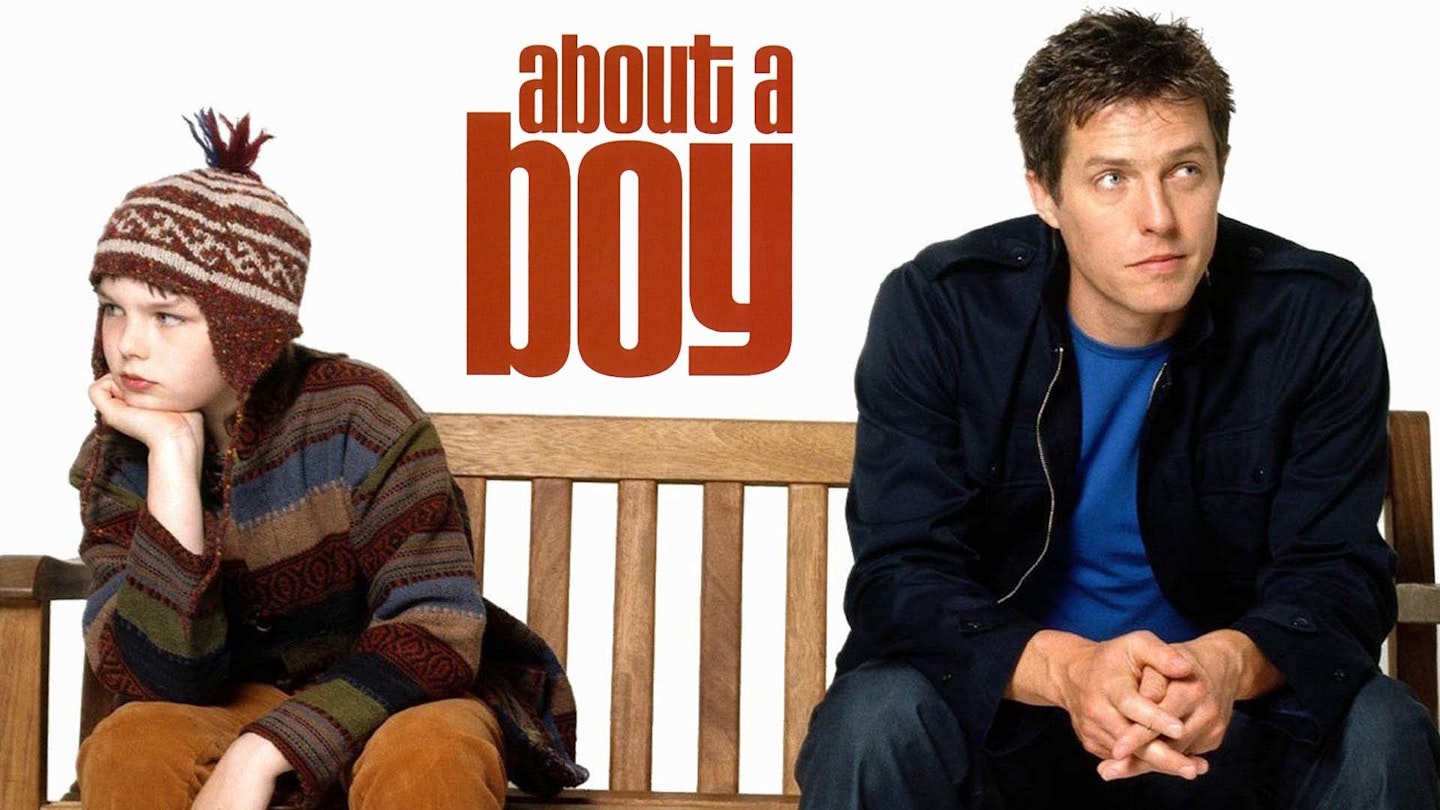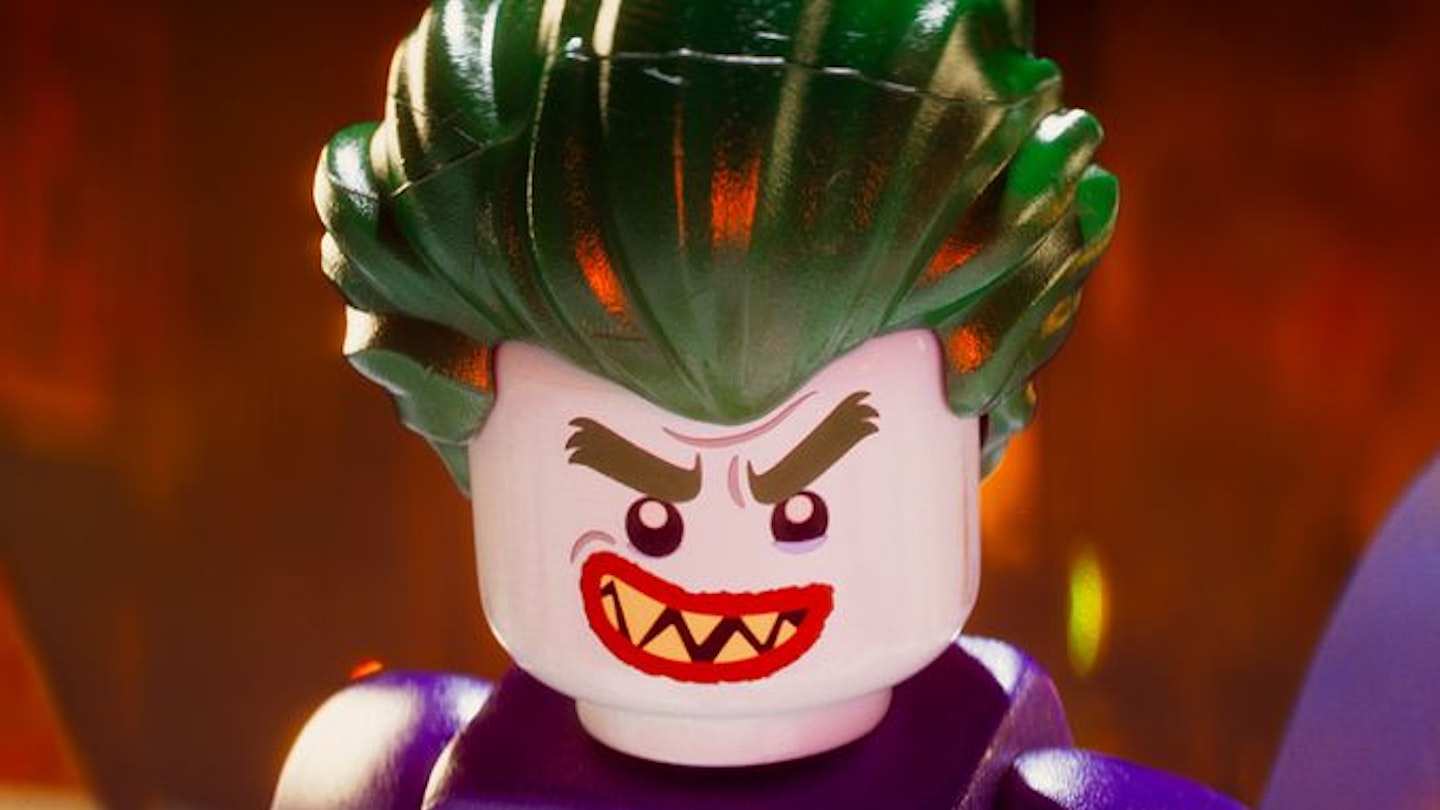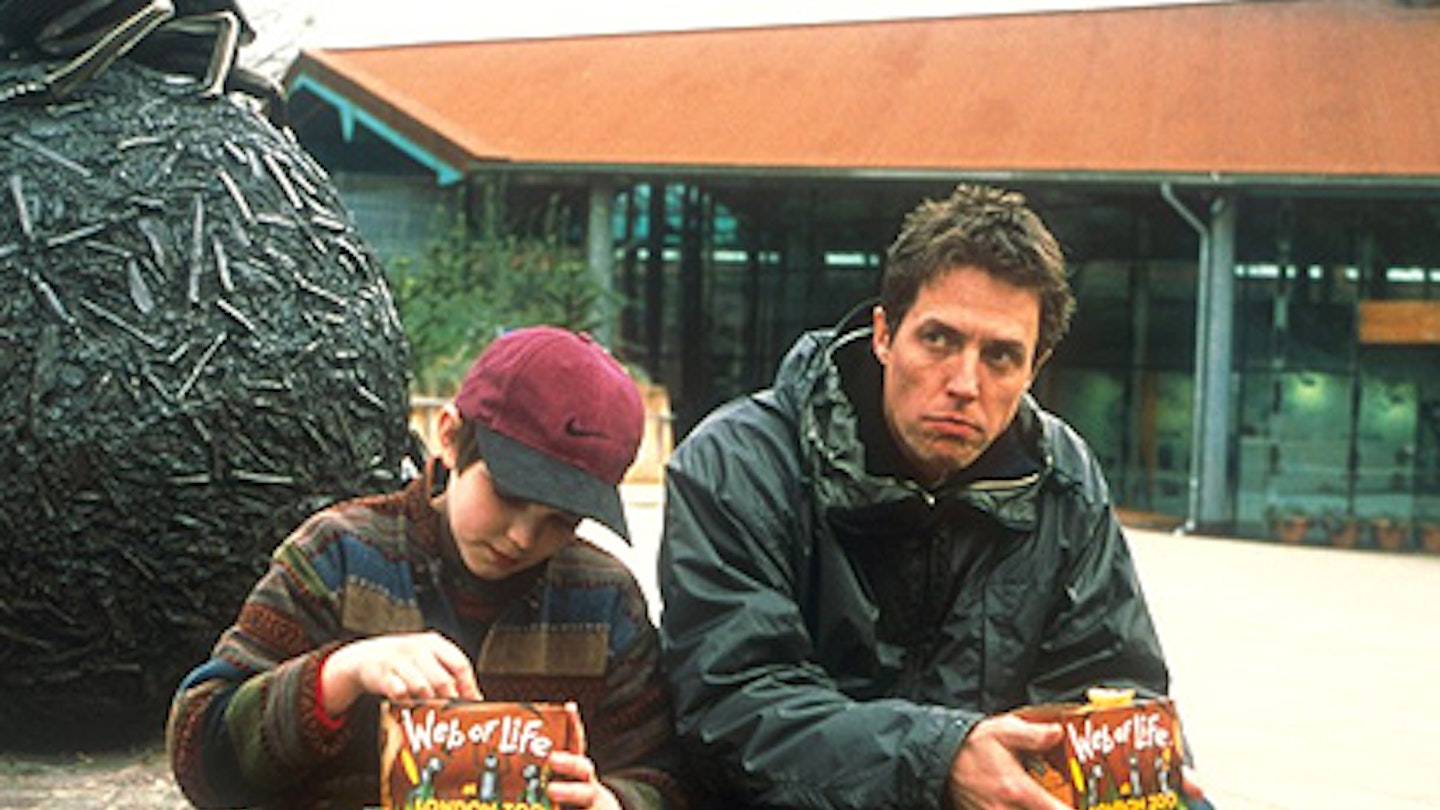Based on a hugely successful book by Nick Hornby, peppered with British acting talent and boasting the Midas touch of Tim Bevan and Eric Fellner, it comes as something of a shock to note that what appears to be an archetypal Working Title production is directed by the New York siblings behind American Pie, and was developed by Robert De Niro's company, Tribeca.
Indeed, after the celluloid version of Hornby's High Fidelity made a smooth transatlantic transplant, it's a wonder that De Niro and co. didn't seriously consider relocating shallow man-boy Will from Hornby's native Finsbury to somewhere cooler like, well, Manhattan. The reason can be found in the actor Tribeca picked to play Will (before Working Title became attached) - Hugh Grant. In his native country, there exists a vocal minority who resist - or perhaps resent - the comedic charms of Hugh Grant. But Grant is as fine a light-comic actor as these shores have produced since another Grant (Cary) showcased his gossamer talents for RKO some 60 years ago. In those days of great studio product, Grant (Cary) was mostly spared criticism for endless takes on his patented patter - Grant (Hugh) has not been so lucky. If we happily admit that Grant's range is limited, the calibration he employs seems endlessly fine.
About A Boy's funniest scenes do allow him to once more riff on the embarrassed English, but he has carefully picked out a new melody line. The scruffy haircut and North London-ish accent are clues - this is not a well-intentioned fop, but a selfish, Seinfeldian character (George with hair, Jerry with better trainers), who lands in endless trouble entirely of his own making. And, once again, Grant showcases consummate skill with occasionally modest material. Watching him work an under-written punch-line around his face - eyes darting, nose twitching - is to watch a master craftsman employing - and enjoying - all the tools at his disposal. Simply put: when Grant is on screen, the movie is a joy. Sadly, at least nominally, this is a two-hander.
Nicholas Hoult is an okay child actor who enjoys a small share of the gags, but when his character wistfully wishes he was Haley Joel Osment (and had his money), you may be tempted to agree. Poor Hoult has a lot to carry - including part of the narration and most of the emotional range - and at times you can feel the strain. Effortless these episodes are not.
There are other problems, too. When Will's voice-over slices neatly into the dialogue - a sarcastic subconscious - you get a sense of Hornby's playful narration. Too often, however, the twin voice-overs are bland and unnecessary. And while Collette and Weisz provide solid support, the movie misses the raft of British eccentrics who made Notting Hill and Four Weddings such breakout hits.
Ultimately, however, the plusses outweigh the minuses. The restraint shown by the brothers Weitz might disappoint those who know them solely from home-baked goods, but they tell this simple story with admirable clarity, employing fluid camera strokes and imaginative framing. Better yet, Badly Drawn Boy's song-based score is a triumph, a musical meta-narrative, adding character without threatening cohesion.


